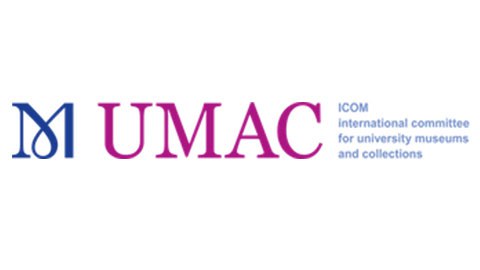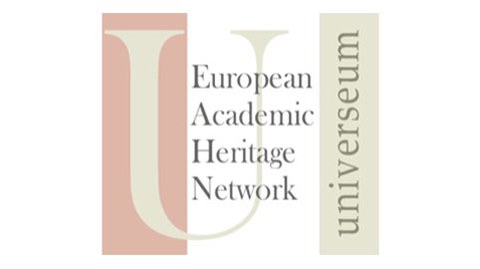Working Groups
During the conference, both ICOM-UMAC's and UNIVERSEUM's working groups will convene for sessions open to all interested conference participants. The sessions will be held on Friday, September 27th, 2024, from 9 to 10:30 am.
If you would like to participate in a Working Group, please do so via the conference's Online Registration Portal which is scheduled to open in April 2024. As places are limited, participation for those without prior registration cannot be guaranteed. More information about the registration process here.
ICOM-UMAC Working Group "UMAC Futures"
Chair
Zhao Ke, University of Electronic Science and Technology of China
Session Themes
UMAC Futures is an established Working Group of UMAC focused on early career professionals in higher education who are either working with or researching the use of museums and collections. At this meeting we are seeking to broaden and refresh the Working Group membership and scope out the extension of current activities and discuss possible new activities. The two current projects are IMAGINATIONS and the University Museums and Collections App.
IMAGINATIONS is a UMAC Futures program aimed at connecting young university museums professionals and support their professional and personal growth. It is comprised of a series of online conversations with young professionals from around the world, sharing their experiences in university museums, their expectations and hopes and their views about the world in general. To date there has been 21 interviews with scholars from 17 different university museums covering a wide variety of topics. The Working Group will discuss future interviews at the meeting.
A new version (3.0) of the University Museums and Collections App has recently been developed and launched in IOS and Android by the Electronic Science and Technology Museum (University of Electronic Science and Technology of China). This has meant the development of new interactive content and improved accessibility. There will be a demonstration of the App at the Working Group meeting, the future of the App will also be discussed.
For more information on the Working Group and its activities, visit
http://umac.icom.museum/activities/umac-futures/
!! NEW !!
ICOM-UMAC Working Group "Object-Based Teaching"
Chair
Dominick Verschelde, Ghent University
Inaugural Session
Recent thematic issues of the University Museums and Collections Journal have identified an immense ,diversity in the pedagogical application of objects in the museums and collections of higher education. With the success of the ongoing Eramsmus+ project by Universeum, “Teaching with Objects” we propose the establishment of a Working Group of UMAC on Object-based Teaching and Learning. This will facilitate the development of a global community of practice focused on the use of collections for teaching in higher education. This initial meeting will scope ideas for projects and develop a strategy for specific projects, identify potential partners and sources of funding to pursue the development of best practice in this area. We take the opportunity of having global representation of higher education practitioners present in Dresden who have used objects in teaching and will invite Working Group participants to briefly outline their experiences in object-based pedagogies at the start of the meeting.
UNIVERSEUM Working Group "Digital Initiatives"
Chairs
Martin Stricker, Humboldt-Universität zu Berlin
Frank Meijer, Dutch Foundation for Academic Heritage
Delphine Issenmann, Université de Strasbourg
Open Session: "How to CARE in Academic Heritage"
During this open working group session we want to explore the role of ethical principles on digitisation projects. Even when copyright laws allow us to share collections online, ethical principles and questions might still hold us back.
The CARE Principles for Indigenous Data Governance (https://www.gida-global.org/care) can help us here: They reflect an ethical commitment by data curators and custodians to create and share object descriptions, metadata and digital reproductions responsibly, to recognize and respect diverse rights, interests and worldviews, to minimize harm and to maximize justice and collective benefit.
For the input talk, we are happy to welcome Michael Markert from the University of Erlangen-Nürnberg: "Embryos on display? Reflections on CAREful data selection“.
Join us, please, and bring your questions, ideas and experiences: How can we, working in and with academic heritage, implement ethical principles in our work?
For more information on the Working Group and its activities, visit
https://www.universeum-network.eu/working-groups/working-group-digital/
!! NEW !!
UNIVERSEUM Working Group "Contested Heritage"
Chairs
Mariana Brum, Centre for Earth and Space Research of The University of Coimbra
Neil Curtis, University of Aberdeen Museums and Special Collections
Kristel Wautier, GUM – Ghent University Museum
Hugo DeBlock, GUM – Ghent University Museum
Inaugural Session
Inspired by the current momentum in academia and the heritage sector with respect to the debate on decolonization and restitution, corroborated by several presentations during the 2023 Universeum meeting, this session will establish a Universeum Working Group on the topic of contested heritage. Building on the current societal debate we wish to take this debate beyond the scope of the colonial context and even beyond the focus on physical objects. Contested heritage also refers to issues as diverse as (current and historic) war looting, ecocide, ongoing illicit trafficking, the impact on intangible cultural heritage and so on. This presentation will offer an open-minded platform to discuss these topics, avoiding the polarities of much public debate and media attention.
We hope that participation in this forum will lead to the establishment of a group of dedicated ‘thinkers and doers’ that will form the core of this new Universeum Working Group. The opportunity for this to be founded during a joint meeting of Universeum and UMAC is critical as it will enable people from outwith Europe to be at the heart of the establishment of this group, so challenging the Eurocentrism of much previous discussion. It is our aim for such a diverse group of people and voices to greatly help form opinions on what exactly entails contested heritage, bring into view hidden contentious collections, work towards a frame of reference surpassing geographic borders, supported by the broader heritage sector and form the basis for future collaborations and research projects.


